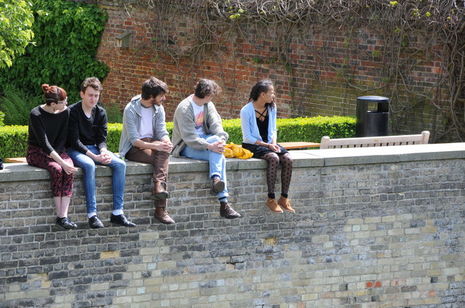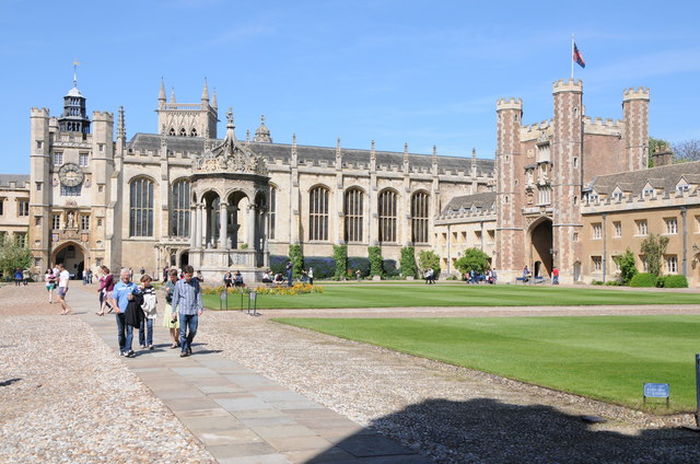The Cambridge foundation year: a sign of progress that must be handled carefully
Ruby Woolfe welcomes the announcement of a Cambridge foundation year but cautions that it must seek to widen access more successfully than previous schemes.

For years, white working-class children have been effectively barred from elite institutions, including Oxbridge. Poor white teens in England’s former industrial towns have been branded as ”left behind“, with white youngsters on free school meals or from disadvantaged areas the least likely group to attend university in general. These groups make up under five percent of students at half of England’s universities, and they remain the least likely socio-economic group to be offered a place at Oxbridge.
Cambridge’s announcement of the “foundation year” access programme is therefore long overdue. It mirrors the Lady Margaret Hall foundation scheme, a course first introduced in 2016 at Oxford. Students study a humanities-based multi-disciplinary course, which aims to combat the conspicuous lack of working-class students studying humanities subjects – many are encouraged by parents and schools to pursue vocational paths. The foundation year application process remains entirely independent from traditional undergraduate applications. Rather than being based on academic merit and potential, the foundation year focuses on “untapped potential.”
Pledged to offer “the best possible preparation for the rigours of a Cambridge degree”, students will benefit from wider enrichment around their subject, able to immerse themselves in the sort of cultural capital accessible through a middle-class upbringing. The scheme has been chosen to pilot in the arts, but it is anticipated that, as the foundation year programme develops, STEM subjects could be added.
“This chronic lack of socio-economic diversity implies that the wrong students are dominating current access schemes.”
Access schemes and preliminary study years have been implemented before at the university. However the number of white working-class students at Cambridge remains pitiful, at 3%. This chronic lack of socio-economic diversity implies that the current access schemes are missing out on those most in need of their services. According to Oxford Professor of Geography Danny Dorling, this is a timeworn trend. “Everyone who is springboarded into an elite environment from a normal school feels like they are of below average wealth.”
One subject-specific foundation course previously implemented is the four year Classics course. The preliminary year aimed to ”widen access to the Classics world“, in an effort to erode the traditional stereotype of studying Classics being almost exclusive to elite private schools. It aims to teach applicants proficiency in Latin and Greek in three terms in order to join up with the main Classics tripos a year later. In 2019, 17% of students on the course came from the independent sector. Given that seven per cent of pupils nationally attend fee paying schools, the course was therefore accommodating almost three times the proportion of independent school pupils on a programme designed to target the state-educated.
The foundation year’s eligibility process remains far more stringent than previous schemes. The extensive and varied weighting of criteria awards places to individuals who are judged to be suitable through individual circumstances, family income, and attending a low attaining school or college. It also prioritises applicants who have spent time in care, a clear step forward in access to Cambridge. A university spokesperson told me: “our eligibility model seeks to target educational disadvantage and is based on educational research into factors that can negatively impact student attainment. It is devised to ensure places are taken up by students who can benefit from the programme.”
Such rigorous measures suggest the foundation year will provide support to those most truly isolated from Oxbridge. In addition to the programme itself, coordinators are launching targeted outreach programmes, supported by third party organisations such as InsideUniversity, which aims to make application knowledge public. It remains impossible for one academic institution to adequately bridge all social and economic disparities between applicants without government assistance, but the foundation year course is certainly a well meaning attempt to try and level the playing field.
Completing the programme will provide students with a recognised CertHE qualification from the University of Cambridge. With “suitable” attainment, foundation students can progress to degrees in the arts, humanities, and social sciences at Cambridge without the need to apply to the University again. The university also promises to provide support for attendees via the Cambridge Bursary Scheme, amongst others. Students will continue to benefit from the range of university support services and college-led pastoral care.
“Will the university be able to support students who are less academically prepared and less culturally at ease?”
Despite such deep wells of support, the success of the programme hinges on the priorities of subject specialists. The university remains confident that the foundation year will enable students to meet the academic expectations of the university and later thrive in such a demanding and competitive environment. However, it is highly unlikely that years of a middle-class upbringing can be made up for in a 24-week programme. Many university representatives feel that academic standards should not be compromised for the sake of access. Will the university be able to support students who are less academically prepared and less culturally at ease?
Robert Verkaik, author of Posh Boys and journalist, agrees: ”reading a degree at one of the grand colleges of Oxbridge, steeped in hundreds of years of tradition and learning, can be culturally very unsettling“. Those who manage to complete the foundation year and move on to an undergraduate degree can still end up having a miserable experience, failing to take advantage of what should be a life-changing opportunity.
With feelings of discomfort and being overworked the norm, the privilege of a Cambridge education is often seen as being able to push an individual as far as one’s abilities may allow them. While the foundation year is undoubtedly a step in the right direction, only time will tell if Cambridge has a suitable understanding of class barriers for the four-year scheme to truly flourish.
 Features / How sweet is the en-suite deal?13 January 2026
Features / How sweet is the en-suite deal?13 January 2026 Comment / Will the town and gown divide ever truly be resolved?12 January 2026
Comment / Will the town and gown divide ever truly be resolved?12 January 2026 News / 20 vet organisations sign letter backing Cam vet course13 January 2026
News / 20 vet organisations sign letter backing Cam vet course13 January 2026 Arts / Fact-checking R.F. Kuang’s Katabasis13 January 2026
Arts / Fact-checking R.F. Kuang’s Katabasis13 January 2026 Music / Inside Radiohead’s circle13 January 2026
Music / Inside Radiohead’s circle13 January 2026










